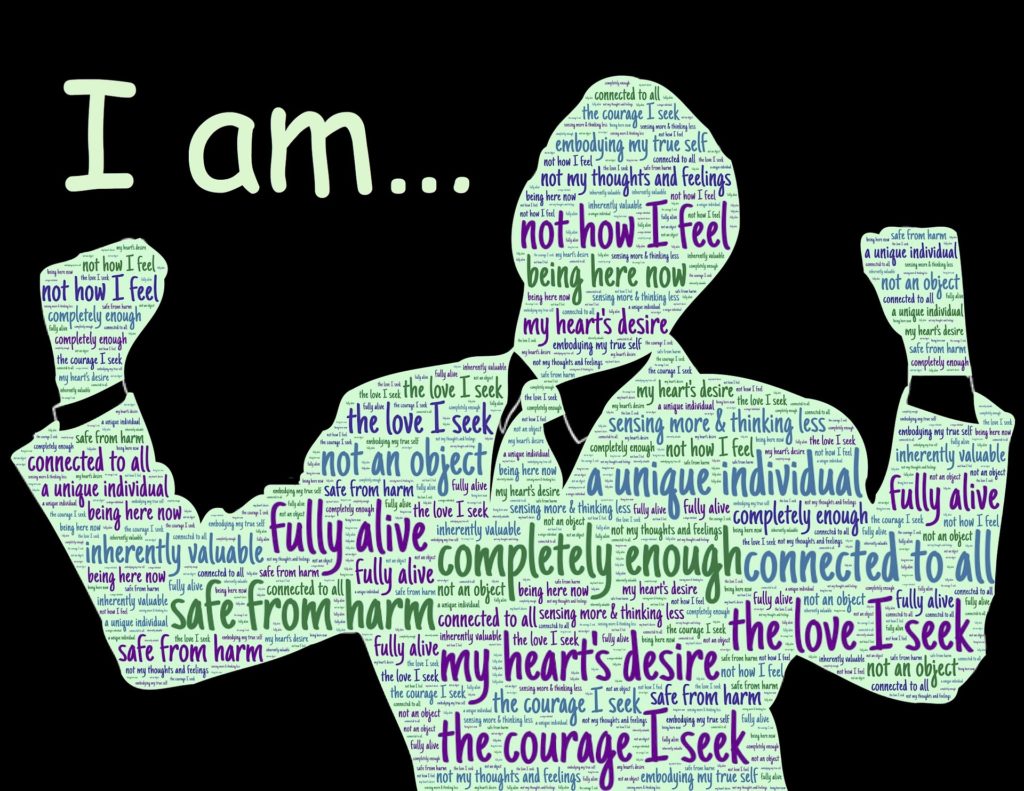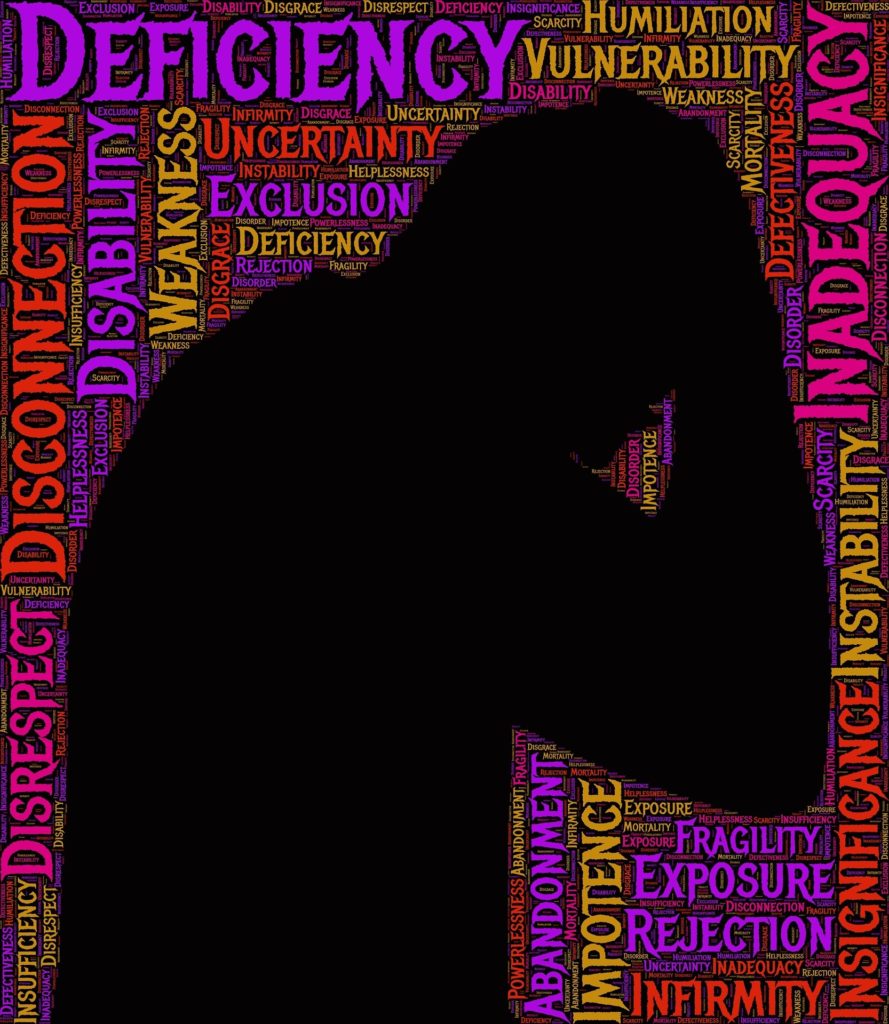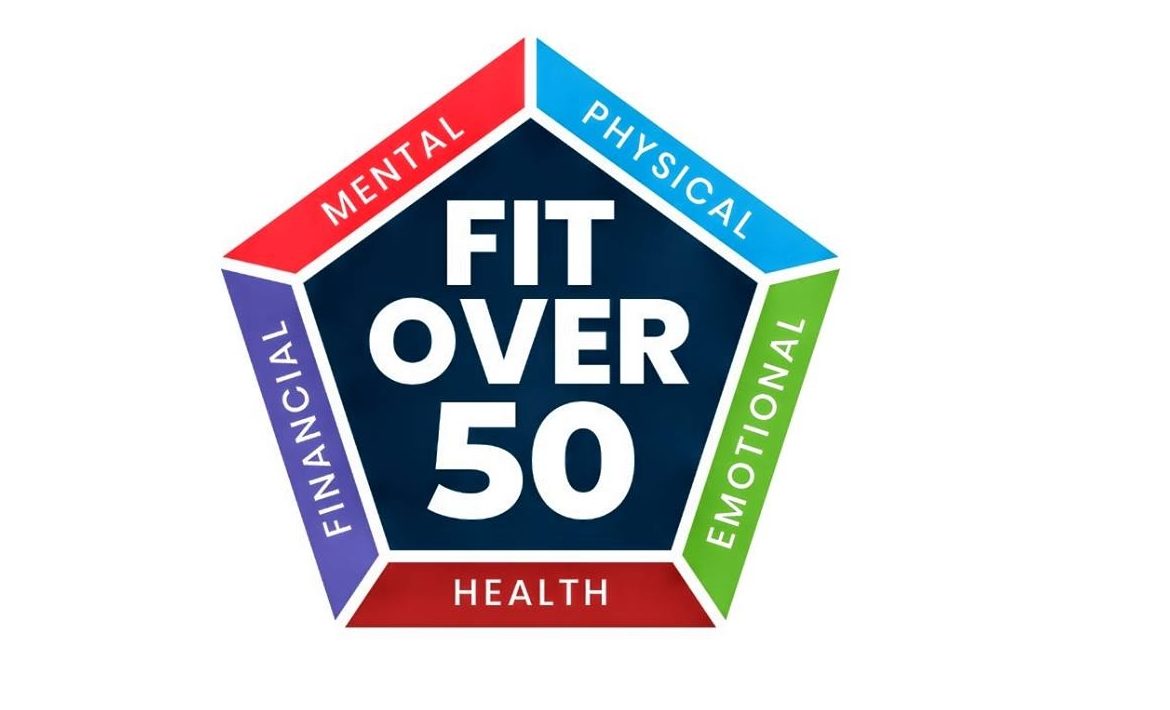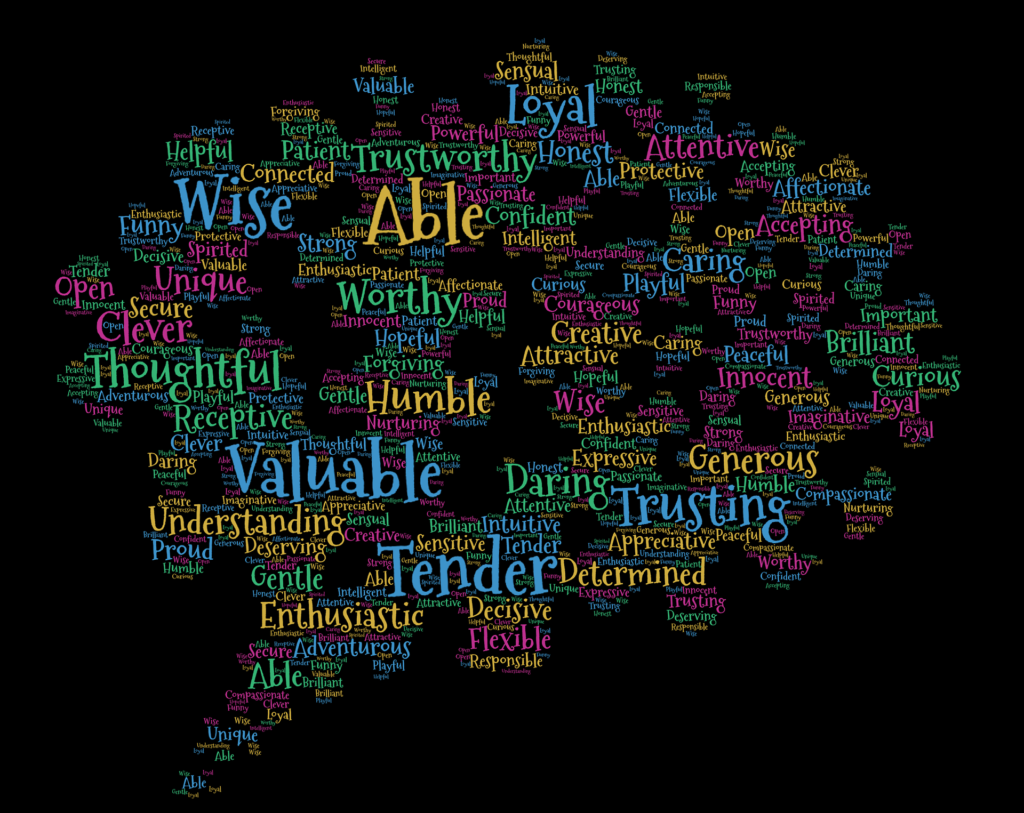– Don’t let your self-esteem hold you back!
– Get the confidence you need To succeed
– How to boost your self-esteem and feel great again
What is self-esteem?
Self-esteem is a psychological construct that reflects a person’s overall subjective emotional evaluation of his or her own worth. It is a judgment of oneself as being competent or incompetent, capable or not capable, likeable or unlikable. Self-Esteem and aging. You’re not too old to change your life
Self-esteem can be high (narcissism) or low (self-hatred). It is related to but distinct from self-confidence, which is the conviction that one can successfully achieve a desired outcome.
People with high self-esteem think they are capable and worthy of respect and admiration. They typically have a positive outlook on life and tend to be optimistic and outgoing. People with low self-esteem, on the other hand, doubt their abilities and feel unworthy of love and respect. They often have a negative outlook on life and are more likely to suffer from depression and anxiety.
Self-esteem is an important part of mental health and well-being. It affects how we see ourselves, how we interact with others, and how we handle stress and adversity.
A high level of self-esteem helps us cope with setbacks and challenges, while a low level of self-esteem makes us more vulnerable to stress and anxiety.
High self-esteem is associated with better mental health outcomes, such as fewer symptoms of depression and anxiety, less vulnerability to stress, and better physical health.
Low self-esteem, on the other hand, is associated with worse mental health outcomes, such as more symptoms of depression and anxiety, greater vulnerability to stress, poorer physical health, and even suicidal behavior.
The Differences Between High Self Esteem And Low Self Esteem
People who have a healthy self-esteem generally have a more positive view of themselves. They don’t let their good days or bad days define them as a person.
They know that they are capable of making mistakes, but they also know that they are capable of learning and growing from those mistakes. They respect themselves and accept themselves for who they are, warts and all. They know that they are not perfect, but they also know that they are worth loving and worth being happy.
People with unhealthy self-esteem often have a more negative overall view of themselves. This may manifest itself in a general belief that they are not good enough or are unworthy of happiness.
This can lead to a variety of negative thoughts and behaviors, including depression, anxiety, and addiction. People with unhealthy self-esteem may also be more likely to engage in self-destructive behaviors such as binge eating, cutting, or abusing drugs or alcohol.

Why Is Self Esteem Important For Mental Health In Elderly People?
One of the key factors that contributes to mental health in elderly people is self esteem. A person’s sense of self worth and value is essential to their well being, and it becomes even more important as a person ages.
Self esteem is an important tool for coping with the challenges of aging. It helps individuals maintain a positive outlook on life, despite physical changes and retirement.
Retirement can be a difficult transition, but those who have strong self esteem are better able to cope with the changes. They are more likely to find new hobbies and activities to keep them busy and engaged in life. They also tend to have healthier social lives, which can be important in maintaining psychological well-being.
Psychological Effects
Low self esteem can lead to a number of psychological problems in elderly people, such as depression, anxiety, and stress.
It can also make it difficult for them to form social relationships and participate in activities they enjoy. Fortunately, there are many things that can be done to improve self esteem in elderly people.
Some ways to boost self esteem include setting realistic goals, focusing on positive aspects of life, and accepting compliments gracefully.
Counseling Can Be Helpful
Self-esteem is not only a concern of the young. Elderly individuals can also benefit from therapy or counseling, which can help them address any underlying issues that may be contributing to low self esteem. By taking steps to improve self esteem, elderly people can enjoy a more positive outlook on life and improved mental health.
Therapy Can Be A Safe Place
Therapy and counseling can provide elderly individuals with a safe space to explore the roots of their low self esteem. Often, elderly people have spent many years in the workforce and caring for others, and they may not have had the opportunity to focus on their own needs. Therapy can help them identify and address any negative beliefs about themselves that may be contributing to their low self esteem.
Counseling can also help elderly people learn how to set healthy boundaries and manage their time and energy more effectively.
This can be especially important for those who are retired and have more time on their hands than they know what to do with. Learning how to manage time and energy can help reduce feelings of overwhelm and stress, which can lead to an increase in self esteem.
Therapy and counseling are powerful tools that can help elderly individuals improve their self esteem. By working on their self esteem, elderly people can enjoy a more positive outlook on life and improved mental health.
What Are The Signs Of Healthy Self Esteem?
Self-esteem is key to a healthy, happy life. People who have high self-esteem know their strengths and weaknesses and accept themselves for who they are. They are confident in themselves and their abilities, and they are able to take on new challenges with optimism.
People with high self-esteem are also more likely to have healthy relationships, because they are not afraid to be themselves and they don’t need to put on a façade in order to please others.

Self Esteem Is Feeling Good About Yourself
Ultimately, self-esteem is about feeling good about yourself, no matter what your age. If you have high self-esteem, you will be happier and more content with your life. You will feel like you can accomplish anything you set your mind to, and you will be less likely to let others bring you down.
If you are looking for ways to improve your self-esteem, start by accepting yourself for who you are and recognizing your accomplishments, big and small. Be kind to yourself, and don’t be too hard on yourself when you make mistakes. Most importantly, focus on the good things in your life and enjoy the journey!
What Are Signs Of Low Self Esteem?
There are a few clear signs that an individual has low self-esteem. One of the most common symptoms is the inability to say no.
Lack Of Boundaries And Self Trust
People with low self-esteem often feel like they cannot refuse any request, out of fear of disappointing others or appearing weak. They may also struggle to trust others, fearing that they will be hurt again if they let their guard down. Finally, people with low self-esteem often take compliments very lightly, dismissing them as not being important.
You Can Boost Your Self Esteem
Fortunately, there are many ways to boost self-esteem. One of the simplest is to practice positive affirmations: telling yourself positive things about yourself, even when you don’t necessarily believe them at first.
Doing things that make you feel good about yourself, such as exercise or spending time with positive people, can also help to improve your self-image. Finally, it’s important to remember that everyone has flaws, and that’s okay! Accepting yourself for who you are is one of the most important steps in building healthy self-esteem.
Does Self Esteem Decrease With Age?
There is no definitive answer to whether self-esteem decreases with age. Some people may find that their self-esteem decreases as they get older, while others may find that their self-esteem actually increases. There are a number of factors that can contribute to changes in self-esteem, such as life experiences, physical changes, and societal expectations.
Some people may find that their self-esteem decreases as they get older because they become more aware of the physical changes they are experiencing.
As we age, our skin becomes less elastic, our hair thins and turns gray, and our bones become brittle. We may also start to experience health problems that we did not experience when we were younger. These physical changes can make us feel less attractive and confident about ourselves.
Societal expectations can also play a role in how we feel about ourselves as we get older. In our youth-obsessed culture, it can be difficult to accept the fact that we are no longer young. We may feel like we are no longer valuable or important if we are not in our twenties or thirties. We may also feel like we are behind in life and have already missed out on the best years. This can lead to a decrease in self-esteem.
However, there are also many positive aspects to getting older. We gain wisdom and experience from living longer. We learn to appreciate the simple things in life and enjoy spending time with family and friends. We also develop a strong sense of who we are and what is important to us. This can lead to an increase in self-esteem.
Ultimately, whether self-esteem decreases with age depends on a variety of individual factors. Some people will find that they become more confident and content as they get older, while others will find that they struggle with feelings of insecurity and inadequacy.

What Causes Low Self-Esteem In Elderly?
There are many potential causes of lower self esteem in elderly individuals. Some common reasons include a decline in physical health, a lack of social support, feelings of loneliness and isolation, and changes in roles and responsibilities.
As people age, they may experience health problems that can lead to a decline in their self-esteem. For example, arthritis, heart disease, and diabetes can all cause physical pain and limitations that can make it difficult to do the things you used to enjoy. This can lead to a sense of self-worthlessness and decreased self-esteem.
Lack of social support is another common contributor to lower self-esteem in the elderly. As people get older, they may lose touch with friends and family members, leading to feelings of isolation and loneliness. This can dent one’s sense of self-worth and make it difficult to feel good about oneself.
Changes in roles and responsibilities are also common among the elderly population. For example, retired individuals may suddenly find themselves with more free time on their hands, which can be daunting and lead to a feeling of emptiness or low self-worth. Similarly, those who are no longer able to care for themselves may feel like a burden on their loved ones and have a reduced sense of worth.
Why Do Older People Lose Their Confidence?
There could be a number of reasons why older people lose their confidence, but some of the most common reasons include feeling like they are no longer useful or valuable, health problems that make them feel less capable, and social isolation.
As people get older, they may start to feel like they are no longer as useful or valuable as they used to be. This can be due to retirement, changes in their job or career, or simply because they are no longer in the workforce.
They may also feel like they are a burden on their loved ones and that they are not doing anything to help out. This can lead to a loss of confidence and a feeling of worthlessness.
Health problems can also lead to a loss of confidence in older adults. As people age, they are more likely to experience health problems such as arthritis, dementia, or heart disease.
These health problems can make it difficult for people to do the things they used to do easily, such as getting around or remembering things. This can lead to a feeling of being less capable and less confident in oneself.
Social isolation is another factor that can lead to a loss of confidence in older adults. As people age, they may start losing friends and family members due to death or simply because people move away. This can leave people feeling alone and isolated, which can lead to a loss of confidence.
What Are The Two Main Causes Of Lack Of Self Esteem?
There are many potential causes of low self-esteem in older adults, but two of the most common are a lack of positive role models and a lack of social support.
One reason that older adults may lack self-esteem is because they don’t have any positive role models to look up to. If they never had a strong relationship with their parents, or if their parents are now deceased, they may not have anyone to model themselves after. This can be especially difficult for women, who are often socialized to put others before themselves.
Another common cause of low self-esteem in older adults is a lack of social support. As people get older, they may lose touch with their friends and family members. This can leave them feeling isolated and alone. Additionally, as people age, they often become less physically active, which can lead to a feeling of loneliness and isolation.
How Do You Build Self Esteem Development In Older Adults?
Self esteem development in older adults can be enhanced through a variety of activities and interventions. One approach to improving self esteem is to focus on building positive self-talk. This can be done by having older adults write down positive statements about themselves, such as “I am kind,” “I am capable,” or “I am valuable.” These statements can then be read aloud every day, preferably several times and they can see that self esteem increases.
Another approach is to focus on increasing social support. This can be done by engaging in social activities with others, such as going for walks, playing games, or attending group meetings. Social support has been shown to increase self-esteem in older adults.
Finally, it is important to focus on accepting compliments. Many older adults find it difficult to accept compliments, but doing so can help boost self-esteem. When someone compliments you, take a moment to reflect on the positive qualities that the compliment highlights. Thank the person for their kind words, and move on with your day feeling good about yourself!
How Can Seniors Gain Higher Self Esteem?
Self esteem is important for everyone, but for seniors, it can be especially beneficial. Higher self esteem can help seniors feel more in control of their lives and more positive about the future. There are a number of ways seniors can work on increasing their self esteem.
One way to improving self esteem is to set goals and accomplish them. This can give seniors a sense of accomplishment and boost their confidence. Another way to increase self esteem is to focus on your strengths and positive qualities. When you think positively about yourself, it will show in your actions and others will begin to see you in a more positive light too.
Finally, it’s important to accept compliments graciously. When someone tells you something nice, don’t brush it off – say thank you!
By accepting compliments, self esteem rises. It helps increase self esteem by reinforcing the positive image you have of yourself. Increasing your self esteem can be beneficial in many ways – it can make you happier and more content, and it can also make you more confident in your abilities. So work on building your self esteem and enjoy the benefits that come with it!

What Are 5 Ways To Build Self Esteem In Older Adults?
Self esteem change is one of the most important aspects of life at any age, but it can be especially difficult for older adults to maintain a positive self image. There are many ways to build self esteem in older adults, and below are five of the most effective methods.
1. Set Realistic Goals
Set realistic goals and celebrate small accomplishments. It’s important for older adults to feel like they are still able to make progress in their lives, even if their goals are more modest than they once were.
Acknowledge and celebrate every small victory, no matter how insignificant it may seem. This consistent developmental pattern will help boost self esteem and keep your outlook positive.
2. Stay Engaged In Activities You Enjoy
Stay engaged in activities you enjoy. When you’re no longer working or raising children, it can be easy to feel like your life is winding down. However, it’s crucial to stay engaged in activities you enjoy and find meaningful. This can help keep your self esteem high and give you a sense of purpose.
3. Spend Time With Positive People
Spend time with positive people. It’s important to associate yourself with people who make you feel good about yourself. Do this and self esteem changes.
Avoid negative people who will only bring you down. Surrounding yourself with positive people will help build your self esteem over time.
4. Be Mindful Of Your Thoughts And Words
Be mindful of your thoughts and words. Our thoughts and words have a powerful impact on our self esteem. If you catch yourself thinking or saying negative things about yourself, challenge those thoughts and replace them with more positive attitude. This takes practice, but it’s worth it in the long run.
5. Seek Professional Help If Needed
Seek professional help if needed. If you find that you’re struggling to build or maintain your self esteem, it may be helpful to seek professional help from a therapist or counselor. They can provide guidance and support as you work through these issues, which can ultimately help improve your self esteem overall.

Final Thoughts
Self-esteem is essential for mental health in elderly people for many reasons. One of the most important is that self-esteem helps to protect against depression and other mental health issues. People with high self-esteem are more resilient and able to cope with stress, setbacks and important life outcomes better than those with low self-esteem.
Self-esteem also helps older adults maintain their independence and dignity. A sense of self-worth allows people to feel good about themselves and their accomplishments, which gives them the confidence to continue doing things they enjoy and to take on new challenges.
Low self-esteem can lead to a number of negative consequences in older adults, such as social isolation, anxiety, and feelings of worthlessness. It can also accelerate the process of cognitive decline and increase the risk of developing dementia.
There are many ways to build self-esteem in older adults. Some simple techniques include setting realistic goals, accepting compliments gracefully, and focusing on positive aspects of oneself. Older adults can also benefit from therapy or counseling, especially if they have suffered a traumatic event or experience low self-esteem chronically.
You might Enjoy This Article As Well

